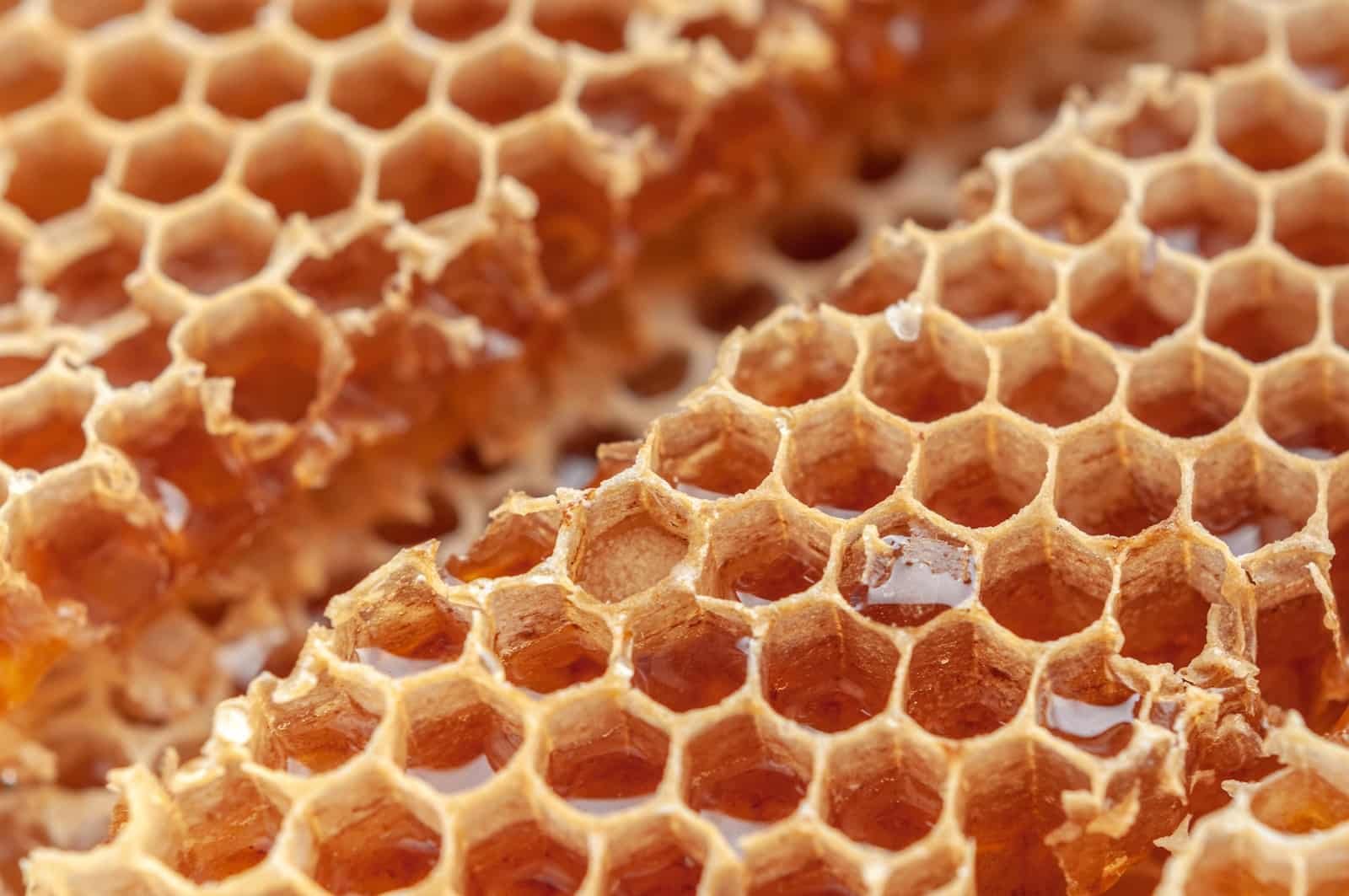We’re buzzing with curiosity about something sweet and somewhat mystical in the food world – honeycomb! Whether you’re a gourmet aficionado or a curious home cook, you’ve probably heard of honeycomb and its natural, waxy allure. But the big question on everyone’s lips (literally) is: Can you eat honeycomb? And more importantly, is it safe to do so?
You see, honeycomb isn’t just the home of honey; it’s a marvel of nature’s engineering, a pantry built by bees, and a structure steeped in intrigue. So, let’s dive into the sticky wonder that is honeycomb and find out what all the buzz is about!
Honeycomb is the beautiful, hexagonal patterned structure created by bees to store their honey and pollen and where they raise their young. It’s made from beeswax, which the little workers secrete from their glands and meticulously shape into the familiar six-sided cells.
The short answer is yes! Honeycomb is entirely edible and offers a unique texture and flavor experience that you won’t get from processed honey. When you bite into a piece of honeycomb, you’re experiencing honey in its most natural form, straight from the hive, complete with all the subtle floral notes that the bees have worked so tirelessly to collect.
Honeycomb is not only safe to eat, but it’s also good for you. It contains natural sugars, which can provide a quick energy boost. The wax part of the comb is rich in heart-healthy long-chain fatty acids and alcohols, which can have positive effects on cholesterol levels. Plus, honey itself is known for its antibacterial properties and can help soothe sore throats and coughs.
Eating honeycomb is simple. You can cut a small piece and pop it straight into your mouth, chew it like gum to extract the honey, and then discard the remaining wax, or you can spread it over warm toast, where the honey will melt into a delicious, gooey spread. Pair it with some sharp cheese on a charcuterie board, and you’ve got a match made in heaven!
Before you indulge, a word of caution for those with allergies: If you’re allergic to bees or pollen, you might want to pass on raw honey and honeycomb. Since honeycomb is less processed than commercial honey, it can contain more pollen, which is an allergen for some people.
Now, let’s talk safety. Honeycomb is generally considered safe to eat. However, as with all foods, there are some best practices to ensure you’re enjoying it safely:
According to the Centers for Disease Control and Prevention (CDC) and the Food and Drug Administration (FDA), honey products, including honeycomb, are generally recognized as safe. However, the FDA advises against the consumption of honey for infants under 12 months due to the risk of infant botulism.
So there you have it, friends! Honeycomb is not only a sweet treat that you can safely enjoy, but it’s also a conversation piece, a work of art from nature, and a testament to the incredible work of bees. Whether you chew on it, spread it on toast, or pair it with cheese, honeycomb is a safe and delectable choice for adding a little buzz to your culinary adventures.


